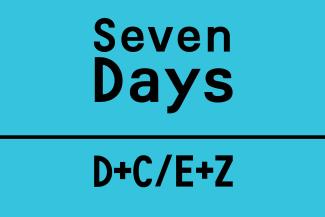In Brief
News of the week

War in Yemen escalates
More countries are getting involved in the war in Yemen. Iran has sent war ships to the Gulf of Aden, and the USA directly supported the Saudi-led coalition by refuelling planes for airstrikes in Yemen. Iran’s supreme leader Ayatollah Ali Khamenei accused Riyadh of genocide and war crimes and predicted their offensive would end in defeat. US secretary of state John Kerry warned Teheran that “the US is not going to stand by while the region is destabilised or while people engage in overt warfare across lines — international boundaries — in other countries”.
Ten Arabian countries are fighting alongside Saudi Arabia against Houthi rebels who forced Yemen’s president Abd Rabbuh Mansur Hadi to flee and who control much of the country. Pakistan's parliament decided on Friday not to join the coalition, rejecting a request by Riyadh. Lawmakers fear the conflict could develop into a proxy war between Saudi Arabia and Iran and inflame already simmering sectarian tension at home. India evacuated about 5600 Indians and other foreigners from Yemen.
While the Saudi-led airstrikes entered their third week, the Houthis are making significant territorial gains. On Thursday, they captured Ataq, the capital of oil-rich southern Shabwa province.
According to aid organisations a humanitarian disaster is looming in Yemen. Food is running out, and the water supply is dwindling. Hundreds of people have been killed and thousands wounded since the beginning of the Saudi aggression. Most victims of the raids are reported to be women and children.
Sources: AP, Reuters, Wall Street Journal, Washington Post
Bad week for human rights in Malaysia
Malaysia has amended its legislation this week in two ways restricting human rights. On Tuesday, the lower house of parliament has passed an anti-terrorism bill under which suspects can be held indefinitely and without a trial. Decisions on their detention will be made by a terrorism board, rather than the judiciary. The bill still needs approval from the Senate. The chamber is dominated by the ruling coalition, so the law is expected to pass. The government justified it with the threat from Islamic extremists. In 2012, the Internal Security Act that allowed indefinite detention without trail was repealed. The new bill was passed shortly after the detention of 17 suspected militants believed to be planning attacks in Malaysia’s capital Kuala Lumpur.
In another parliamentary decision on Friday, penalties under the country’s controversial sedition law were toughened. The law regulates speech deemed to incite unrest or religious tensions. Rights groups say the definition of sedition remains open to wide interpretation and abuse by the government. Under the amendment, the maximum sentence was extended from three to 20 years in prison. The revised act also makes it illegal to propagate sedition on the Internet, sparking concerns over possible web censorship.
According to the BBC, Human Rights Watch criticised the anti-terrorism bill as ”a giant step backwards for human rights”. The Guardian quoted the NGO’s reaction to the amended sedition law, calling it “a human rights disaster for Malaysia that will have a profound chilling effect on freedom of expression, both in daily life and in online communication”.
Sources: The Guardian, BBC
Life sentence for Srebrenica genocide upheld
Former Bosnian-Serb army general Zdravko Tolimir cannot escape life in prison for his role in the Srebrenica massacre. The International Criminal Tribunal for the former Yugoslavia in The Hague upheld his 2012 life sentence for genocide. The judges found that Tolimir played a key role in the killings in July 1995 that left some 8,000 Bosnian boys and men dead. Although some of Tolimir’s 25 grounds of appeal were admitted, the presiding appeals judge said they weren’t significant enough to allow a reduction of his sentence. The decision is final.
Tolimir, now 66 years old, was chief for intelligence and security of the Bosnian-Serb army and one of the deputies of military commander Ratko Mladic. The Srebrenica massacre was part of a campaign of ethnic cleansing carried out by nationalist Serbs against Bosnia’s Muslims and Croats. It was the worst atrocity on European soil since the Holocaust.
The tribunal has put 20 individuals on trial for crimes committed in and around Srebrenica, with 15 convicted and one acquitted so far. Prominent suspects are Mladic, against whom the prosecution is set to present new evidence this summer, and former Bosnian Serb political leader Radovan Karadzic, who is scheduled to have his verdict read in October.
Sources: Reuters, The Wall Street Journal
France opens archives about Rwanda genocide
France played a controversial role in the 1994 genocide in Rwanda that killed more than 800,000 people. 21 years later, the country has opened it archives. About 80 documents that were formerly classified as confidential are now accessible for survivors, historians and organisations concerned with the matter. Among the files are notes by the Military Staff of then-President François Mitterrand, about ministerial meetings concerning the crisis as well as diplomatic and military advices.
France, at that time allied to the Rwandan government, has admitted making mistakes over the genocide but denies Rwandan claims it directly supported ethnic Hutu extremists who slaughtered members of the minority Tutsi community.
Sources: Le Monde, BBC
China tightens grip on Tibetan monasteries
Peking is tightening its grip on monasteries in the autonomous region of Tibet. Party secretary Chen Quanguo, a non-Tibetan who practically governs the region, has ordered all monasteries to fly the national flag in order to enhance the monks’ and nuns’ “patriotism”. The term is often used to describe obedience to China’s communist party’s rule. Chen said that all Tibetan monasteries – that are traditionally and purposely secluded – must also be equipped with telephone connection, newspapers and reading rooms and that roads to tie them to other parts of Tibet would also be built. Furthermore, he announced propaganda activities aimed at leading monks to “educate themselves in patriotism”.
Many Tibetans accuse the central government of religious repression and eroding their culture. Dozens of monks and nuns have set themselves on fire in protest in recent years. Tibet was annexed by China in 1951. Its spiritual leader, the Dalai Lama, and its government-in-exile are based in the Indian city of Dharamsala.
Source: The Guardian
These items were compiled by Katja Dombrowski on the basis of international media coverage.











